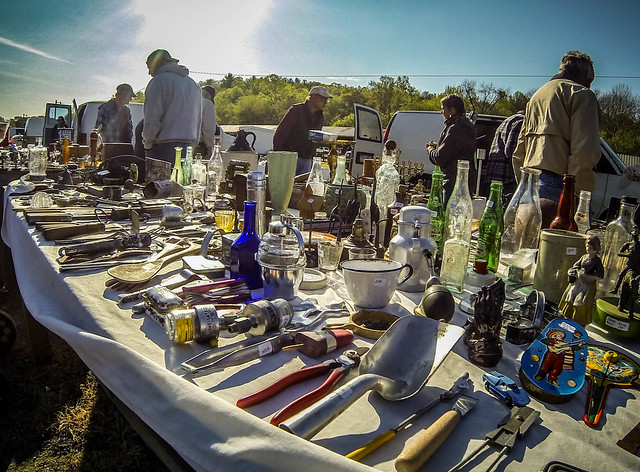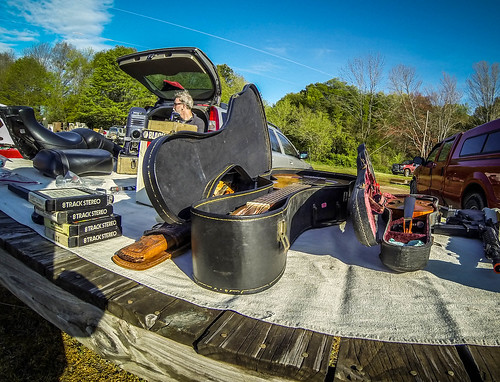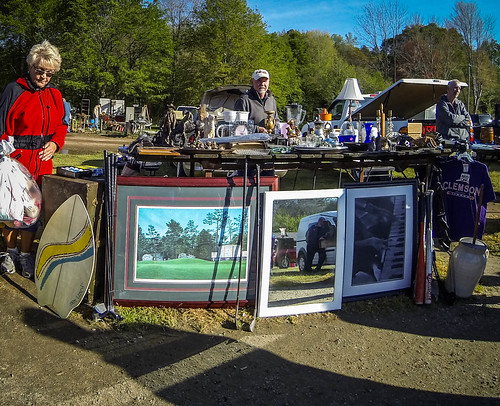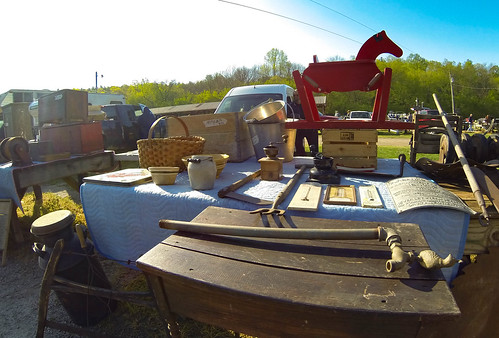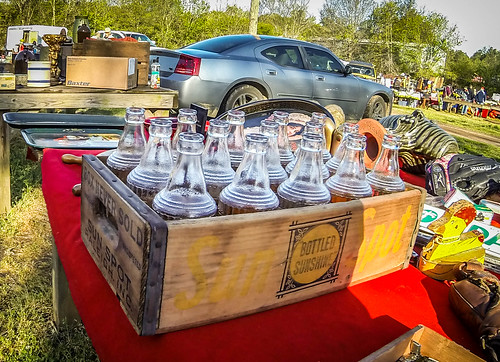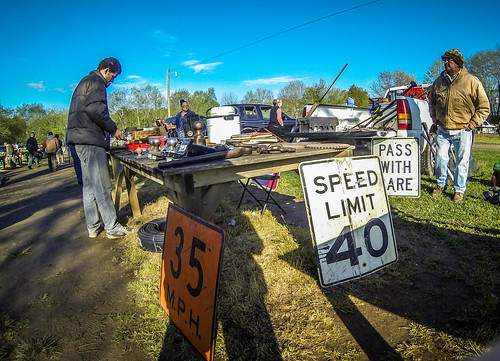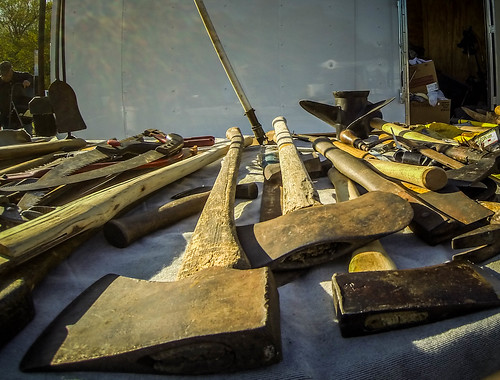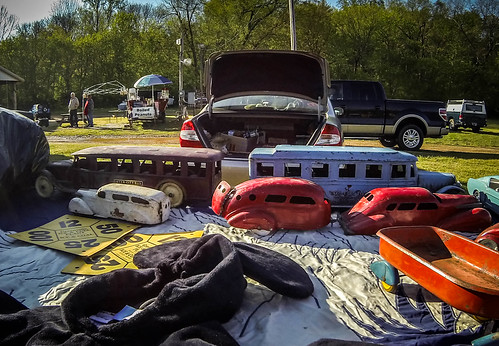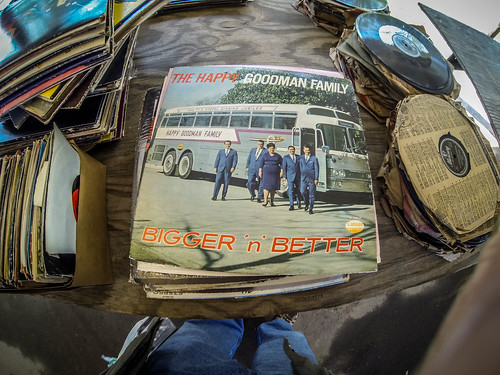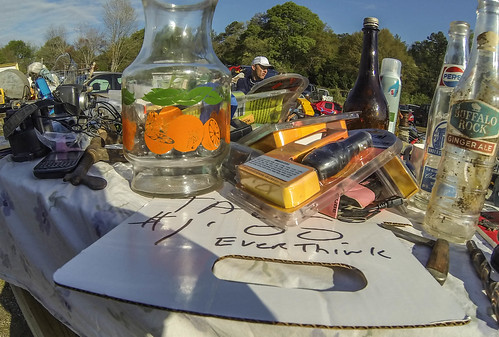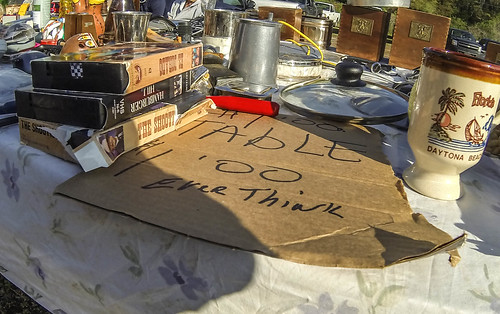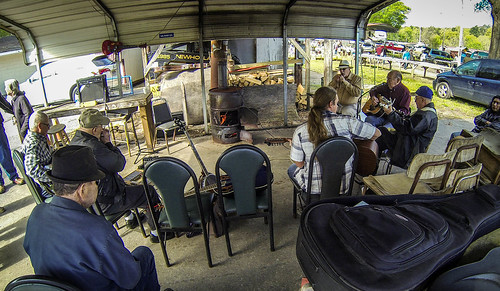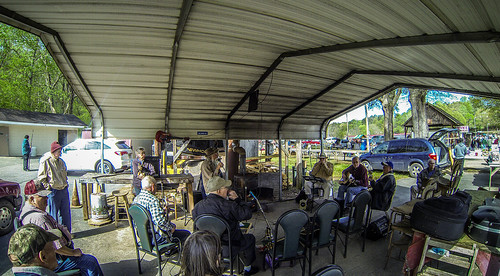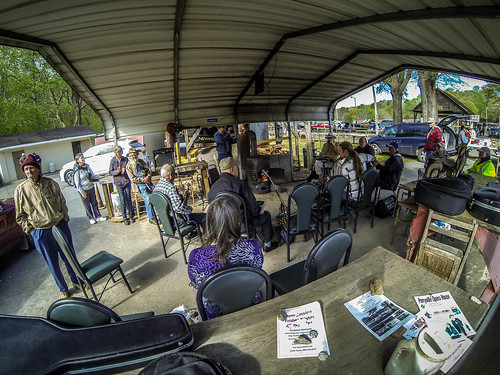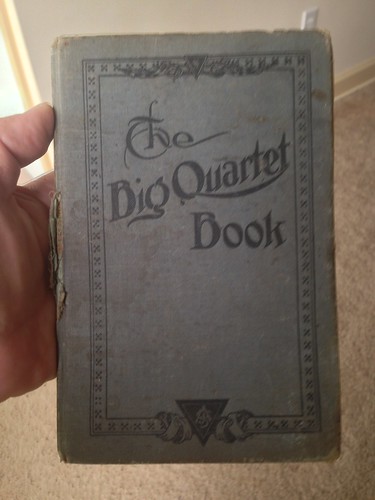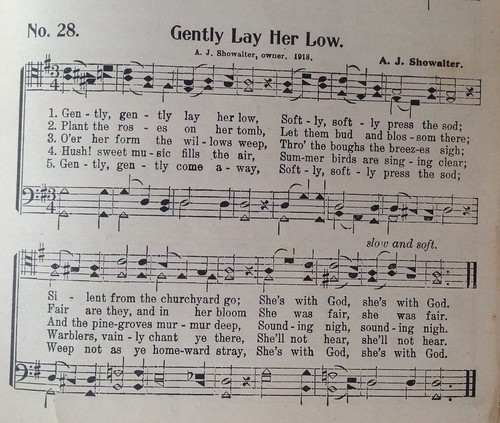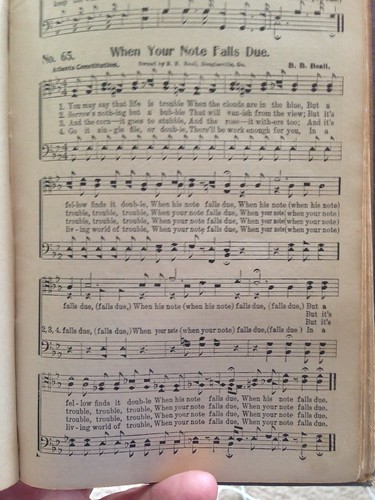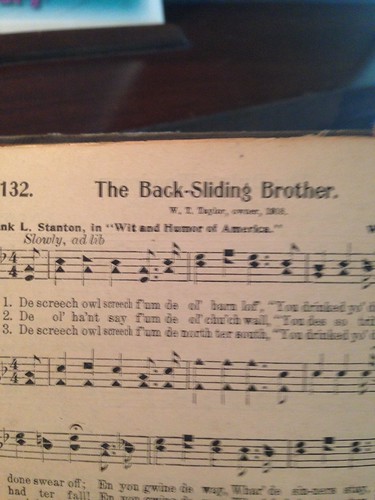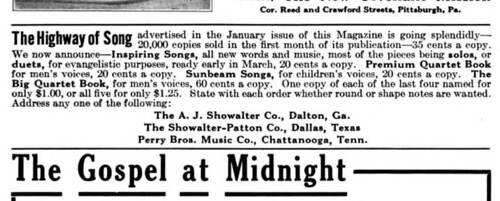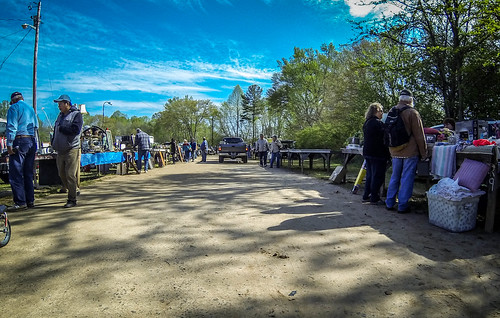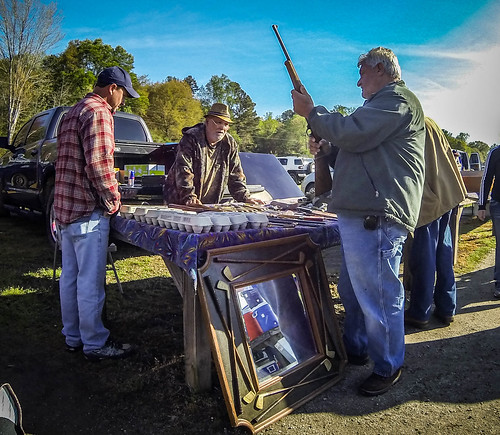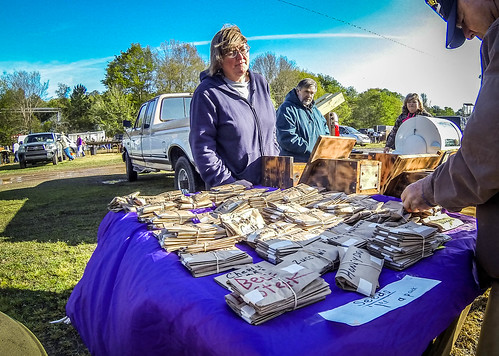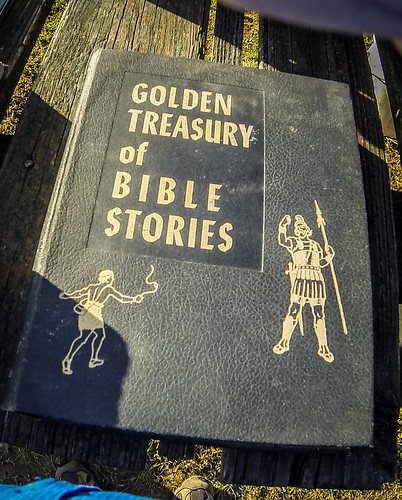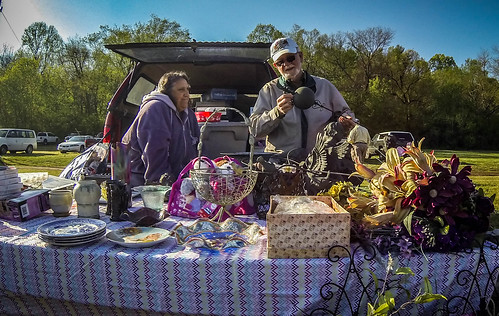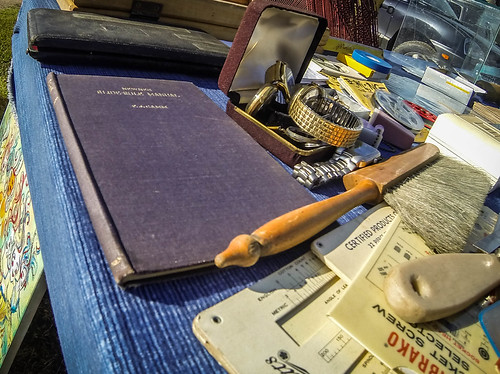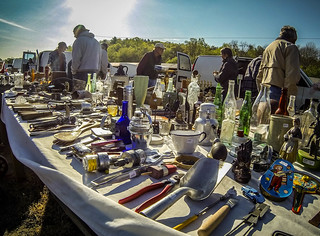Yeah, I guess it’s getting to be a habit. It’s Wednesday and I was back at the Pickens Flea Market. I had gone specifically to listen to the musician’s corner and see if someone was playing the banjo this time. What I found was music of another type entirely.
I got to the market at about 8:30 and things were in full swing. It seemed like there were fewer vendors this time, but it was still busy. I walked through the covered areas quickly, with just a brief stop at the musician’s corner to make sure they were gathering. I had another target first. From a browser’s standpoint, the best stuff is in the west side of market on the open tables. There seem to be more antiques and random interesting things there.
I walked past a table with several antique hymnals, browsed through them, then put them back down. I then sent a text to Laura that she would have been proud of me for passing them up.
So far I hadn’t taken any photos. I was doing more browsing than photography. I’d toyed with the idea of just leaving the cameras tucked away, but, of course, I couldn’t resist. I pulled out only one camera – my small GoPro. I got the standard shots of weird crap I always get on these trips.
These signs were all over one vendor’s tables. Either he’s found a cure for Alzheimer’s and is selling it for $1, or his grammar is very bad.
I did make it back to the musician’s corner. There were pretty much the same complement playing as before. There was a banjo sitting on a chair, but no one there was playing. Doris, their usual lead singer, wasn’t around. I stuck around for a couple of songs, and decided that I might be able to hang with them on the banjo. I may have to give it a try next time. Robert Perry sang at least one song. He had even brought his pet pig.
I didn’t come away completely empty-handed. I found a nice small stand for my banjo. There was another find, though, that really caught my interest.
Yeah, I did buy an old music book. It was in with a different stack of hymnals. What prompted me to purchase this one was opening it to a random page and founding this jewel…
The first part of the first verse sounds almost…pornographic to our modern ears.
Gently, gently lay her low,
Softly, softly press the sod;
Silent from the churchyard go;
She’s with God, she’s with God.
The rest of the verses get increasingly maudlin. There were several other equally maudlin songs, many of them by the same composer, A. J. Showalter. More on him in a bit. First, though, another perplexing tale of woe was found in the song, “When Your Note Falls Due.”
You may say that life is trouble
When the clouds are in the blue,
But a fellow finds it double,
When his note falls due…
I thought I’d found another odd funeral hymn, but a closer inspection of the text shows that it’s not. There is no mention of God, and more references to material goods. The “note” is an actual reference to debt, and not a euphemism for death.
The book is a strange mix of hymns and songs. It’s not a hymnal, but a collection of songs for quartet, which would include popular songs of the time. There are lots of sad, weepy songs, but there are a couple of the racist old Minstrel Show songs – “Old Black Joe” and “Massa’s in de Cold, Cold Ground.” There wasn’t a publication date, but I’m guessing it wasn’t too long after World War I. There were several that seemed to be soldier songs, such as “My Dear Old Home.” All of these genres were mixed together, somewhat haphazardly.
When I got home I did some digging and found that the composer of “Gently Lay Her Low”, A. J. Showalter, is Anthony Johnson Showalter, a music teacher and publisher from Dalton, Georgia.

Showalter was born in 1858 in West Virginia, then moved to Dalton after he got married. In 1890 he started the A. J. Showalter Company and published several rudimentary music books and collections of songs. During his life, he wrote and published over 20 books on music theory, harmony, and composition which were widely used in singing schools throughout the Southern US and composed almost 200 hymns. The hymn for which he is most famous is “Leaning on the Everlasting Arms.” Showalter collaborated with Elisha Hoffman on that song, with Hoffman writing the text to the verses, and Showalter composing the tune and writing the text to the verse. Showalter died in 1924 in Chattanooga where he spent the last years of his life. He is buried in Dalton, Georgia.
I wasn’t able to find much information on my flea market find, though. There’s actually a listing for it on Amazon, which indicates that it was published in 1918. (The price isn’t too bad on Amazon, but I was glad to see that I got it for even less.) The quartet book, along with other books by Showalter were advertised in Christian publications such as Moody Monthly. Here’s one of those advertisements from the Christian Thought publication.
As was the practice of the time, Showalter formed a quartet to tour and promote sales of his music books. Later, after Showalter’s death in 1924, the Stamps Baxter Quartet would become the most successful at promoting the music of their namesake company, but Showalter did it first for his publishing firm.
The music and text of “The Big Quartet Book” seems alien, and even offensive to us now. Think how alien and offensive Rap would be if played back then (or any other of today’s popular music.) The music of the era reflects the concerns and sensibilities of the time in which it was composed. Only the very rare piece stands the test of time.
But back to the flea market…
I had hesitated in going to the Pickens Flea Market this morning, thinking, “Do I really want to do this again?” I’ve hundreds of the exact same photo. However, it’s discoveries like this, and like the QSL cards I found last time that keep me coming back. Where else can you have this much fun for $2 and the cost of gas?
